Posted on
April 21, 2018 by
Joe Fleming
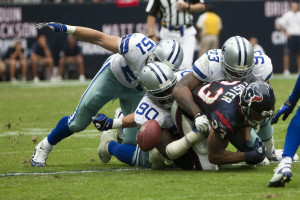 Good posture helps you feel more confident, gives you more energy, and can even make you appear taller and slimmer. Good posture is also essential for athletes who want to perform their best and avoid serious injuries.
Good posture helps you feel more confident, gives you more energy, and can even make you appear taller and slimmer. Good posture is also essential for athletes who want to perform their best and avoid serious injuries.
Athletes with Posture Issues
Many athletes struggle with genetic posture issues. For example, Usain Bolt, the fastest man on earth, was born with a curvature in his spine that has affected his hamstrings.
Others, like running back Arian Foster and quarterback Tony Romo, have suffered from non-genetic issues like bulging and herniated discs, which have caused them severe back and leg pain.
Good posture can’t completely prevent these issues, especially when they’re genetic. But, improving posture can help those with both genetic and non-genetic posture issues heal faster and avoid additional injuries.
How Good Posture Prevents Injury
Good posture is essential for athletes who want to maintain strength and optimum health on and off the field. Some ways that posture contributes to injury risk (or lack thereof) include:
Less Stress on the Joints
When you stand or sit incorrectly, it’s easy for your muscles to tighten. This tightening, in turn, puts extra stress on the joints. Athletes’ bodies already takes a beating during practices and workouts. To reduce this damage, it’s important to avoid adding stress to the joints by slouching. Read the rest of this entry →
Tags: Sports Injuries
Category
Sports Fitness
Posted on
February 26, 2018 by
Joe Fleming
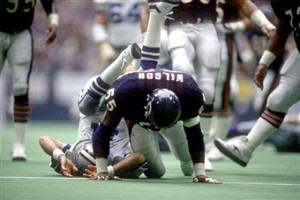 The ancient Greek philosopher Heraclitus probably first said that “the only constant in the universe is change.” This phrase definitely applies to sports injuries, at least to some extent.
The ancient Greek philosopher Heraclitus probably first said that “the only constant in the universe is change.” This phrase definitely applies to sports injuries, at least to some extent.
Some people still remember the 1992 NBA All-Star game which featured the return of Magic Johnson. A few months earlier, he had retired after announcing he was HIV positive. Several other players, including Karl Malone, openly expressed misgivings about Johnson’s return and their own risk of contracting AIDS. We now know these fears were foolish, but they were very real at the time.
Fortunately, deadly sexually-transmitted diseases like AIDS are not a problem on most sports teams. But sports injuries are a constant concern. In some cases, the treatment approach has changed significantly in recent years; in other cases, not so much.
Football and Concussions
Head injuries have been an issue in football ever since William Harvey laced up the cleats for Penn in 1894. “In a scrimmage behind the goal I was knocked insensible, but recovered in about fifteen minutes,” he later wrote. For the next hundred years, every player who received a head injury in football got basically the same treatment: a few plays off, some smelling salts, and a cursory “how many fingers am I holding up” medical exam.
Things began to change in 1994 when then-NFL Commissioner Paul Tagliabue ordered league doctors and other scientists to examine the problem more closely. Today, no one is really sure how the NFL and other football leagues should handle head injuries. Players want to play, coaches want to win, and fans want to see lots of action, but a player’s long-term health is at stake. There’s a balance there somewhere.
New innovations should help improve treatment protocols. For example, the Food and Drug Administration recently approved a concussion diagnosis blood test. Very soon, this test could eliminate the guesswork involved in this area. Read the rest of this entry →
Tags: Sports Injuries
Category
Football, Health & Fitness, NFL, Sports Fitness, Sports Medicine
Posted on
February 13, 2018 by
Dixie Somers
 Participation in sports is a great way to stay active and healthy, promote strong interpersonal relationships, and even develop leadership qualities that last a lifetime. For all the good things sports can provide, though, they do come with their fair share of risks. One of the risks involved in sports is dental injuries such as busted or knocked-out teeth. Avoiding these types of injuries should be an important part of any preparations for those involved in sports, as it can help ensure a lifetime of good oral health.
Participation in sports is a great way to stay active and healthy, promote strong interpersonal relationships, and even develop leadership qualities that last a lifetime. For all the good things sports can provide, though, they do come with their fair share of risks. One of the risks involved in sports is dental injuries such as busted or knocked-out teeth. Avoiding these types of injuries should be an important part of any preparations for those involved in sports, as it can help ensure a lifetime of good oral health.
Practice Well
Sometimes, dental injuries in sports, just like car accidents on the road, are unavoidable. At the same time, just like you can help prevent a car accident by practicing good driving habits, you can give yourself a better chance of avoiding a dental injury by regularly practicing the sport you’re involved in. Solid practice allows better understanding of the fundamentals of the game you’re playing, as well as a higher proficiency in the more technical aspects. Together, this allows you to pay more attention to the players around you, rather than on yourself, aiding you in avoiding collisions that can lead to dental injuries.
Wear the Correct Gear
To be sure, wearing a mouth guard isn’t the most enjoyable experience. At times, it can be big, bulky, and uncomfortable, not to mention feeling totally unnatural. However, as unpleasant as it may be, ensuring you are always wearing your mouth guard is far and away the best method for preventing dental injuries in sports. If this is something you struggle with, it might make sense to make putting in your mouth guard part of your practice regimen, just so it will become an ingrained habit that is unlikely to be broken. That way, when game day arrives, and you’re thinking about a thousand other things, you won’t forget to put that mouth guard back in after every timeout. Read the rest of this entry →
Tags: Sports Injuries
Category
Sports Medicine
Posted on
October 17, 2017 by
Dixie Somers
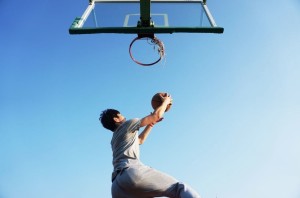 Engaging in sports provides the exercise the body needs, in an enjoyable manner that also fosters regular interaction with other people. These qualities explain why it is one of the most popular ways of staying fit and healthy. However, many sports include the risk of injury, usually from various sprains and strains that occur during play. You can prevent many of these injuries by taking proactive measures to protect your joints and muscles against overuse. Here are a few tips for staying injury-free and ready for play.
Engaging in sports provides the exercise the body needs, in an enjoyable manner that also fosters regular interaction with other people. These qualities explain why it is one of the most popular ways of staying fit and healthy. However, many sports include the risk of injury, usually from various sprains and strains that occur during play. You can prevent many of these injuries by taking proactive measures to protect your joints and muscles against overuse. Here are a few tips for staying injury-free and ready for play.
Do Warm-up Stretches
You can prevent common injuries, such as ankle sprains, back strains and groin pulls by doing a series of warm-up exercises that work your body sufficiently to improve blood flow that helps protect muscles. Stretches, jogging in place, knee bends and other gentle exercises help to prepare your body for a vigorous physical workout.
Provide Proper Support
If you have an ankle that tends to give out or a knee that sometimes fails, use an elastic brace or Rock tape to provide additional support. Proper bracing can help to avoid sprains and dislocations that can keep you out of the game for long periods of time. If you are engaged in a sport that poses a risk for tooth injuries, use a mouth guard to prevent damage to teeth that can result in the need for extensive dental work. A simple elbow to the mouth could result in something as serious as the need for a root canal. Read the rest of this entry →
Tags: Sports InjuriesSports Medicine
Category
Sports Fitness, Sports Medicine
Posted on
July 10, 2017 by
Kara Masterson
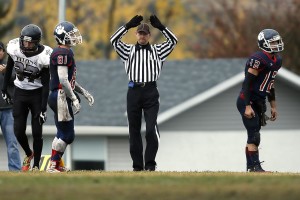 Playing a sport can help you stay in shape, stay connected with friends and have fun at the same time. If you have been injured, you may be tempted to play through the pain or come back too soon. These are both bad ideas. What are some good ways to manage your sports injuries?
Playing a sport can help you stay in shape, stay connected with friends and have fun at the same time. If you have been injured, you may be tempted to play through the pain or come back too soon. These are both bad ideas. What are some good ways to manage your sports injuries?
See Your Doctor
The first thing that you should do is see your doctor and get a proper diagnosis of your injury. After determining the extent of the damage done to your body, he or she can create a timeline to returning to play. If the injury is a minor one, you may just need to rest or limit the amount of time spent on the field for a few days. If the injury is a major one, it may require months of rehab or surgery to correct.
What If Surgery Is Needed?
Seeing an orthopedic surgeon like Western Orthopaedics or someone similar may be necessary if you have a torn tendon or have ripped a muscle from the bone. If you have suffered from chronic pain, getting surgery may help you live a better quality of life both on and off the field. Depending on your age and other health factors, you could recover in a matter of weeks. Read the rest of this entry →
Tags: Sports InjuriesSports Medicine
Category
Health & Fitness, Sports Medicine
Posted on
May 28, 2017 by
Dixie Somers
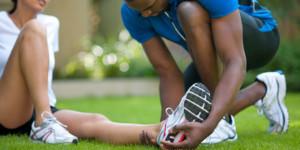 Sports injuries happen regularly, whether they are in organized sports programs or just playing a simple game of pick-up basketball. Sports injury claims can often be problematic for the injured party in very serious situations when specific claim factors are considered by a respondent insurance company. Regardless of what transpires that produces an insurance policy injury claim, the insurance company adjusters will still investigate the claim diligently looking for reasons to limit coverage. In some instances, the only coverage is for medical bills. The can result in the necessity to consult with a personal injury attorney concerning injury compensation because details always matter in any personal injury claim.
Sports injuries happen regularly, whether they are in organized sports programs or just playing a simple game of pick-up basketball. Sports injury claims can often be problematic for the injured party in very serious situations when specific claim factors are considered by a respondent insurance company. Regardless of what transpires that produces an insurance policy injury claim, the insurance company adjusters will still investigate the claim diligently looking for reasons to limit coverage. In some instances, the only coverage is for medical bills. The can result in the necessity to consult with a personal injury attorney concerning injury compensation because details always matter in any personal injury claim.
Case Specifics
In the event that a sports injury claim goes to court, the injured claimant legal counsel must prove the injury occurred either due to the negligence of the property owner for the safety of the injured party or by intentional act. Many times insurance companies even deny claims that are the result of an intentional action by the property owner or individual in charge. How an injury occurs is important in every instance, and limitations on coverage could be largely dependent on which form of comparative negligence your particular state uses. Assumption of personal risk is always a consideration in sports injury claims because most athletic activities are personal choices by the injured party. Actually, in organized sports injuries, waivers on legal claims are often a component of the sign up process, so claims could be limited by agreement of all involved parties. Read the rest of this entry →
Tags: fitnessSports Injuries
Category
Health & Fitness, Sports Medicine
 Good posture helps you feel more confident, gives you more energy, and can even make you appear taller and slimmer. Good posture is also essential for athletes who want to perform their best and avoid serious injuries.
Good posture helps you feel more confident, gives you more energy, and can even make you appear taller and slimmer. Good posture is also essential for athletes who want to perform their best and avoid serious injuries.







